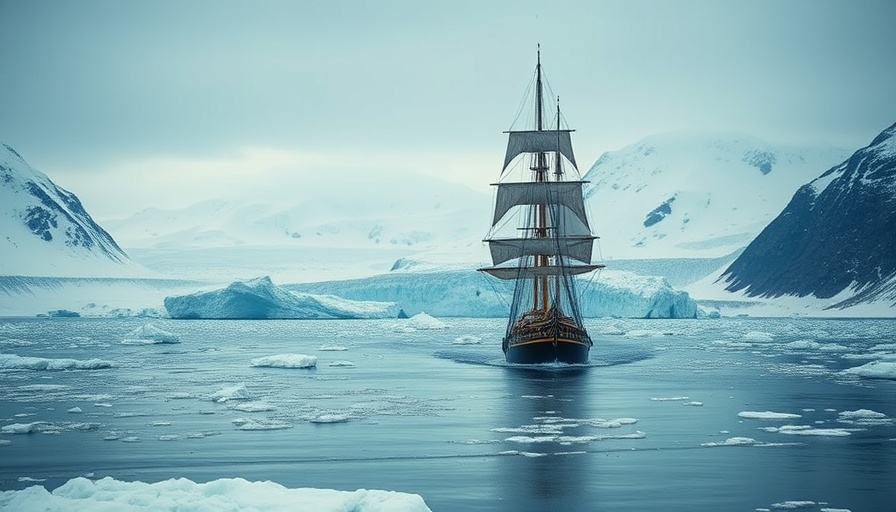
Discovering the Ocean’s Secrets: Lessons from Captain Scoresby
In a quest for understanding the mysteries of ocean temperatures, Captain William Scoresby Jr. of the Resolute embarked on a remarkable journey in 1810 using a ten-gallon fir-cask. He challenged prevailing assumptions about ocean temperature, demonstrating that deeper waters can be warmer than what is found at the surface. This revelation not only shaped the scientific community's understanding of the sea but also has messages for today’s world, particularly regarding climate change and ocean currents.
Understanding Scoresby’s Innovative Approach
Scoresby’s fir-cask, crafted from thick fir planks to minimize heat retention, was an innovative tool designed to measure water temperatures at various depths. When lowered into the frigid waters of the Greenland Sea, it offered surprising results: where the surface temperature measured a chilly 28.8 degrees Fahrenheit, temperatures began to warm significantly at depths of 300 feet and beyond. Scoresby’s findings revealed a hidden warmth lurking beneath the cold Atlantic facade, challenging the simple notion that the ocean behaves uniformly like a large bathtub.
The Implications of Ocean Temperature Research
This pioneering study emphasized the importance of understanding ocean currents and their implications on global temperatures. The Gulf Stream, for instance, plays a crucial role in transporting warmer waters northward, impacting climate along the coasts of Scotland and contributing to the warmth that allows unique ecosystems to thrive. By grasping the complexity of these underwater systems, contemporary scientists can better predict and address climate-related issues that threaten our planet today.
A Reflection on Climate Change
Scoresby didn't just measure temperatures; he raised concerns about climate change, noting the impact of warmer waters on the environment. His observations resonate today as we grapple with the realities of climate change. Rising sea temperatures affect weather patterns, ice melt, and marine ecosystems, calling for urgent action from today’s generations. Understanding Scoresby’s observations can inspire more conscientious behaviors toward our planet.
Connecting Past and Present: The Relevance Today
Scoresby’s adventure into the depths of the ocean serves as a reminder of the ongoing relationship between human beings and their environment. It illustrates the power of curiosity and innovation in uncovering truths about the natural world. For those of us who enjoy outdoor activities, these historical lessons underscore the need to engage with and protect our environment. Whether capturing the excitement of ocean exploration or advocating for sustainability, we can all learn from Scoresby’s legacy.
Engaging with Nature and Its Mysteries
For families and outdoor enthusiasts, the story of Captain Scoresby offers a unique way to connect with nature. Exploring ocean tides and currents not only enriches our understanding of aquatic environments but can also inspire the next generation to develop a sense of stewardship for our planet. Initiatives encouraging outdoor exploration and education can significantly impact how we shape future generations' relationships with nature.
As we embark on our own environmental journeys, let’s carry forward Scoresby’s commitment to discovery and understanding. By learning from the past, we can better navigate the challenges of the present and future.
To continue this exploration of our natural world and engage with others passionate about preservation, consider joining a local environmental group or participating in community clean-up efforts. Together, we can make a difference by promoting awareness and collective action for a sustainable future.
 Add Row
Add Row  Add
Add 




Write A Comment